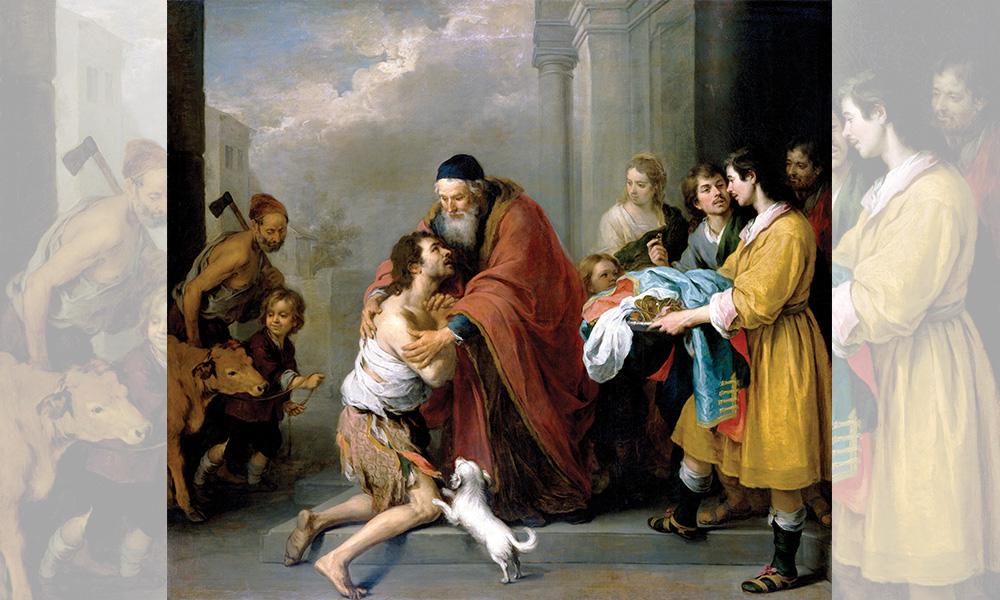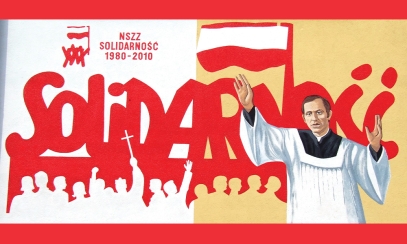
‘Love your neighbor as yourself’
The life and dignity of the human person
A series on the social doctrine of the Church
The life and dignity of the human person
A series on the social doctrine of the Church
Our Catholic faith has a tremendous body of teaching, rooted in the Scriptures and in the Apostolic witness, that points to the transformative power of the Truth of Jesus Christ in the midst of our human society. This teaching can easily be found in the Compendium of the Social Doctrine of the Church. In particular, Pope St. John Paul II put forth a special effort in clearly focusing the role of the Church and its members in this transformative work of evangelization in the world. In this line, John Paul II wrote three powerful encyclicals: Laborem Excercens (Through Work), Sollicitudo Rei Socialis (The Social Concern), and Centesimus Annus (The Hundredth Year). These three documents point out, in a special way, Catholic thought about the proper way to live in society.
Our Catholic faith has a tremendous body of teaching, rooted in the Scriptures and in the Apostolic witness, that points to the transformative power of the Truth of Jesus Christ in the midst of our human society. This teaching can easily be found in the Compendium of the Social Doctrine of the Church. In particular, Pope St. John Paul II put forth a special effort in clearly focusing the role of the Church and its members in this transformative work of evangelization in the world. In this line, John Paul II wrote three powerful encyclicals: Laborem Excercens (Through Work), Sollicitudo Rei Socialis (The Social Concern), and Centesimus Annus (The Hundredth Year). These three documents point out, in a special way, Catholic thought about the proper way to live in society.
Our current moment is filled with noise and buzz about many societal issues, but it seems that often, the Gospel, the Church’s teaching, and the powerful witness of the saints, which contain some of the most transformative, radical ideas, and perhaps most powerful agents for positive change, are largely ignored. In this series of articles, seven themes of Catholic Social teaching are presented, which provide a clearer vision of the role that each Catholic person has in our society and in our common life on this planet.
The first theme concerns the essential dignity of the human person and the sacredness of human life.
The Lord teaches us clearly: “Love your neighbor as yourself.” (Mt 22:39) Of course, this love is rooted in understanding that from conception to natural death the human person is made in the image and likeness of God and that every person has an essential dignity that must be respected.
We must love the person that God made, knowing that He loves our enemy as much as He loves us. Thus, by loving the divine image God has placed in us, we can more clearly understand our role as a Christian and a child of God, sharing that love by transforming the relationships that exist between human persons in our society.
The work of the evil spirit is to divide and create division between persons, convincing them that somehow they are separated from other humans by some invented criteria. The work of the Christian is to further, in a concrete fashion, the sacramental communion we experience as a eucharistic people. By being an advocate for the rights and responsibilities that each member of a society inherently has, we can combat the fractured nature of a society that, in the words of Francis Cardinal George, “wishes to permit everything and pardon nothing.”
The essential dignity of the human person is best defended in daily and unseen actions. Jesus did this when He washed the feet of His disciples at the Last Supper. He did this when He asked the woman caught in adultery, “Who remains to accuse you?” Each one of us can engage in the powerful work of social transformation simply by respecting, through our actions, the image of God that is found in every human person.
Father John G. McDonald is currently pastor of Sacred Heart of Jesus Catholic Church in Anniston. He was principal and then president of John Carroll Catholic High School from 2008 to 2016, and he served as the Carl J. Peter Chair of Homiletics at the Pontifical North American College in Rome from 2016 to 2019.



